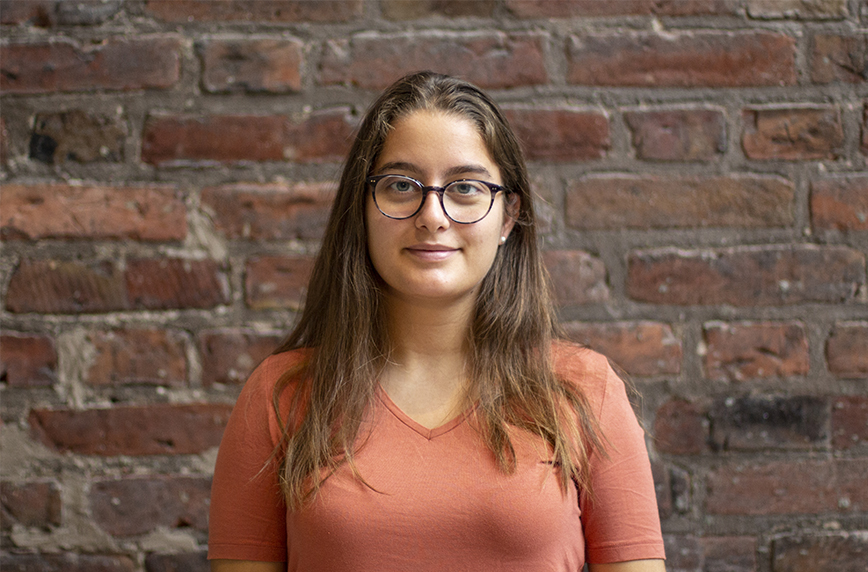Mar
Mar comes from Spain. After finishing her Bachelor’s in Telecommunications Engineering, she decided to start the Master’s programme in Information and Network Engineering at KTH. Apart from multimedia signal processing, she enjoys music, films and engaging in original activities with her friends.

Why did you choose this master’s programme at KTH?
KTH seemed like the best option for me in terms of its curriculum, people’s recommendations, prestige and location. Also, Sweden is a country with plenty of start-ups, which makes you think that their students leave university with the urge to create. As for the programme, I chose it because it was based on concepts that I needed to review and it also offered many recommended and optional courses related to machine learning, a field I did not learn much about when I took my bachelor’s degree.
What are the best aspects of your programme?
I like the fact that there are a lot of courses from which to choose, depending on your interests and it is flexible in relation to what you have learnt in the past. The programme director is also really helpful if you have any doubts about a track or specific courses.
Have you chosen a specialisation track within the programme? If Yes, which track and why?
I have chosen the Multimedia Processing and Analysis track because I was interested in working with image and video signal processing and coding.
What are your favourite courses thus far?
The course I have enjoyed the most thus far is Image Analysis and Computer Vision, which was recommended for my track. We learnt about a lot of engaging concepts and the labs were really useful as well. The mandatory course Theory and Methodology of Science was also very interesting, particularly if you end up understanding all the concepts. You can even use them in your everyday life!
How do studies at KTH differ from your previous studies?
The two most significant differences from my previous studies are the schedules and the work. At KTH, you have four academic periods and, at a standard pace, you take two courses at a time. I liked this distribution because it lets you focus more on the current courses. Also, the fact that the courses last for approximately two months means that there is quite a lot of work to do. And yes, it might feel overwhelming at first, but it’s truly a good way of actually learning.
How is student life in Stockholm?
Whatever it is that you like to do in your free time, Stockholm has it. There are bars in the city centre and on the campus. And if you’re not interested in bars, there are plenty of activities around the city either organised by companies or by student organisations. If you live in a student residence, you will probably get to meet students from KTH or other universities – and that is one of the best parts.
How would you describe your time at KTH so far?
Starting from 1 August, when the student reception activities started, it was really enjoyable. Then the courses started, but I was able to continue meeting people and hanging out with those who I had already met. I have also been encouraged to attend academic conferences organised at KTH, which have been both entertaining and interesting.
What do you want to do after graduating?
I don’t have anything really planned yet, but I have been enjoying my time here and there are a lot of opportunities in Stockholm. So there’s a really good chance I will stay here.
What would you like to say to students thinking of choosing KTH for their master’s studies?
I would tell them that everyone has a different story and that there is no way of knowing what would have happened if you didn’t come here. However, for me, this experience has been incredible, in terms of both academia and social life.
I have met people from all over the world who have different interests and goals and this has allowed me to become inspired and motivated about the future.
